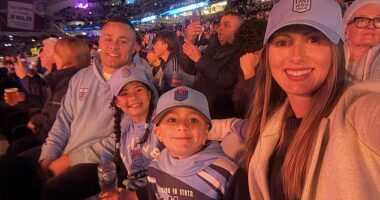A few days before they’d been to his GP about the same leg, which appeared to be sore.
But Naomi, 38, a legal secretary and her husband Adam, 40, who work in sales were told it was probably just “body fatigue” from a fever.
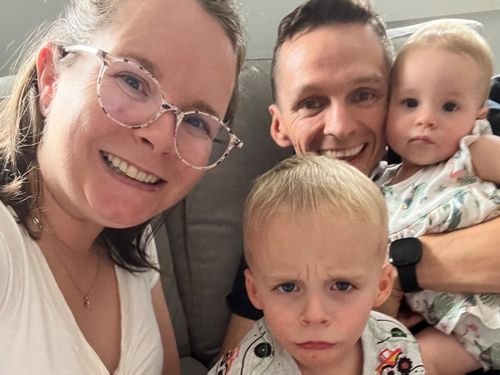
However, when the Sydney couple got to hospital, Harrison, who was two, was given further tests.
“The thought never crossed our mind that this could be something as serious as cancer,” Naomi said.
“To be told that your two-and-a-half year old has cancer is just life shattering.
“There’s nothing else that I’ve ever been through that comes close to receiving that news.”
However, Harrison’s was a complex case, and it took weeks for medics at Sydney children’s hospital to figure out exactly what kind of cancer he had.
After genetic testing, the Sydney couple were told it was acute myeloid leukemia, a cancer of the blood and bone marrow.
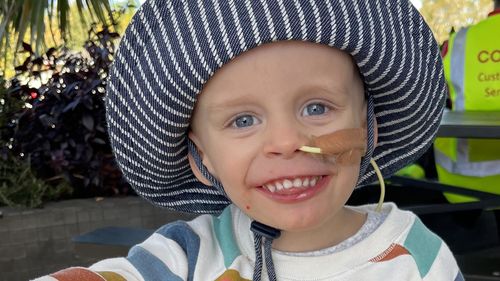
Harrison started intensive chemotherapy. And after the first of four rounds went into remission.
That meant he didn’t need a bone marrow transplant.
However, dealing with a toddler with cancer was tough.
”Because he was so young he just needed constant comfort. he was in so much pain,” Naomi, said.
Harrison finished treatment last winter and now is a lively four-year-old who also has a little sister, Imogen.
“He loves to kick a ball, he loves to go swimming, loves playing on a playground, he never stops,” Naomi said.
But not all kids who get a cancer diagnosis are so lucky.
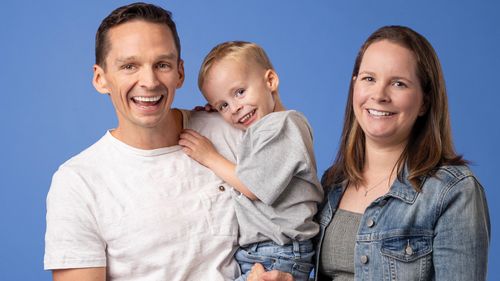
Researchers at the Children’s Medical Research Institute (CMRI) in Sydney are looking how to improve survival for childhood cancer.
Cancer researcher Dr Rebecca Poulos has been working on research into proteins, which could offer new treatment hopes.
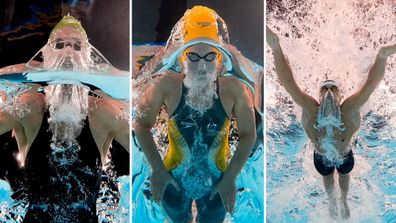
Underwater cameras deliver incredible images of athletes at work
“Proteins are the molecules in cells that enable them to function,” she said.
“They are extremely important in all healthy cells.
“But in cancer, proteins can become dysregulated – which means cells can start to grow uncontrollably and they don’t receive the usual signals to switch off.
“This can happen for a variety of reasons, including if a protein becomes altered by a mutation in the DNA of a cancer cell.
“We found that there are major opportunities to improve outcomes for patients by focusing on proteins in some of the hardest-to-treat childhood cancers.
“The dream is to find a protein or set of proteins that can clearly tell us which patients will respond to which anti-cancer drug.”

